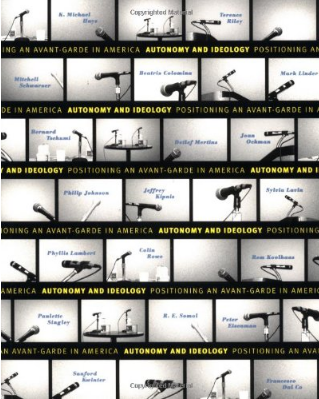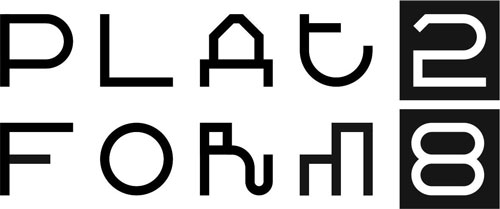
Autonomy and Ideology: Positioning an Avant-Garde in America
November 1997
By Robert E. Somol
- 20/20: Editorial takes on Architectural discourse
- A Question Of Qualities: Essays In Architecture
- AA Files #57
- AA Files #58
- AA Files #59
- AA Files #60
- AA Files #61
- AA Files #62
- AA Files #63
- AA Files #64
- AA Files #65
- AA Files #66
- AA Files #67
- AA Files #68
- AA Files #69
- AA Files #70
- Adolf Loos
- Architecture After Revolution
- Autonomy and Ideology: Positioning an Avant-Garde in America
- Best of Austria Architecture 2006_07
- BIG
- Big, Hot To Cold: An Odyssey Of Architectural Adaptation
- Black + Architecture
- Cedric Price: Potteries Thinkbelt: SuperCrit #1
- Citizens of No Place: An Architectural Graphic Novel
- Content
- Deep Veils
- Detail in Contemporary Bar and Restaurant Design
- Detail in Contemporary Timber Architecture
- Details in Contemporary Residential Architecture
- Diagram Diaries
- Disegno #12
- domus 1950s
- Ehituskunst 2013: ... like dancing about architecture
- Ehituskunst 2015: What do you want, Brick?
- Elements
- Elements of Venice
- Floor Plan Manual Housing
- Geographies of Information
- Hariri & Hariri: Work in Progress
- How to Make a Japanese House
- Interactive Architecture: Adaptive World
- Inventario 03: Everything Is A Project
- Junya Ishigami: How Small? How Vast? How Architecture Grows
- Jutaku: Japanese Houses
- KM3-Excursions on Capacities
- Learning from Las Vegas
- Made in Tokyo
- Material Matters: New Materials in Design
- Material World 3: Innovative Materials for Architecture and Design
- Materials for Architectural Design
- Matter: Material Processes in Architectural Production
- Mobile Architecture
- MVRDV: Works and Projects 1991-2006
- Narrow Houses: New Directions in Efficient Design
- New Urban Housing
- OASE 90: What Is Good Architecture?
- OASE 94: O.M.A. The First Decade
- Pamphlet Architecture 24: Some Among Them Are Killers: Unmanaged Landscapes for Non-U.S. Military and Government Users
- Pamphlet Architecture 25: Gravity
- Pamphlet Architecture 27: Tooling
- Pamphlet Architecture 28: Augmented Landscapes
- Pamphlet Architecture 29: Ambiguous Spaces
- Pamphlet Architecture 30: Coupling: Strategies for Infrastructural Opportunism
- Pamphlet Architecture 31: New Haiti Villages
- Pamphlet Architecture 32: Resilience
- Pamphlet Architecture 33: Islands and Atolls
- Pamphlet Architecture 34: Fathoming the Unfathomable
- Project of Autonomy: Politics and Architecture Within and Against Capitalism
- Richard Rogers: Architecture of the Future
- Robert Venturi and Denise Scott Brown: Learning from Las Vegas: SuperCrit #2
- SAN ROCCO #05 SCARY ARCHITECTS
- SAN ROCCO #08 WHAT'S WRONG WITH THE PRIMITIVE HUT?
- SAN ROCCO #09 MONKS AND MONKEYS
- SAN ROCCO #10 ECOLOGY
- SAN ROCCO #11 HAPPY BIRTHDAY BRAMANTE!
- Softspace: From a Representation of Form to a Simulation of Space
- Such Places as Memory: Poems 1953-1996
- Tallinn Architecture Biennale 2013: Recycling Socialism
- The 21st Century Office
- The Metapolis Dictionary of Advanced Architecture: City, Technology and Society in the Information Age
- Transmaterial 2: A Catalog Of Materials That Redefine Our Physical Environment
- Transmaterial 3: A Catalog of Materials that Redefine our Physical Environment
- Transmaterial: A Catalog of Materials That Redefine our Physical Environment
- Yes Is More: An Archicomic on Architectural Evolution


